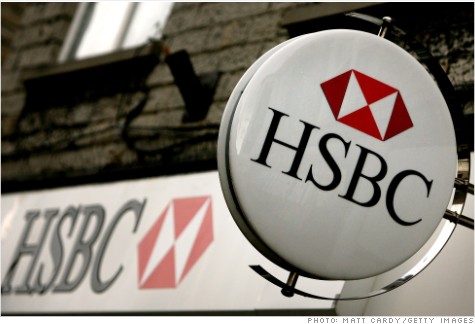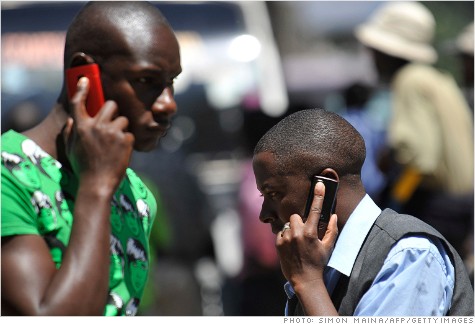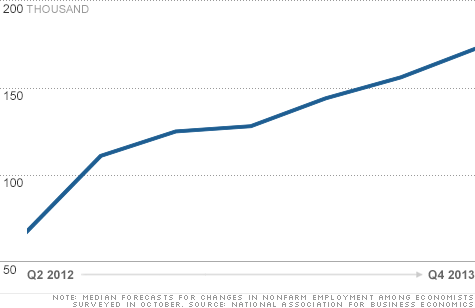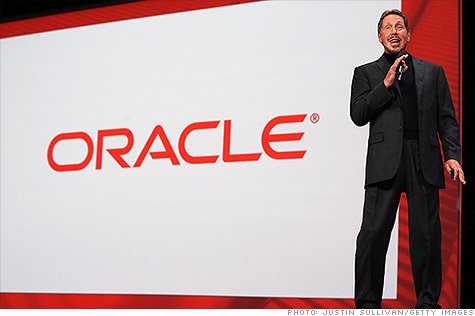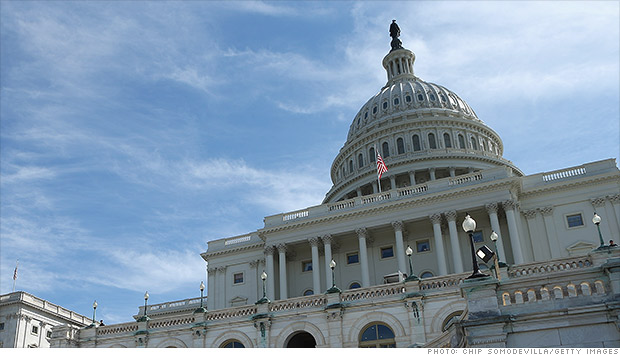
Lawmakers say they want a fiscal cliff deal this year. But they may fail to reach one. And if the country goes over temporarily no one can say with confidence how that would hit the economy.
NEW YORK (CNNMoney)
Some lawmakers and pundits suggest it won't be a big deal to go over the cliff for a short while. But that is assuming a lot, especially since Congress will be navigating uncharted waters.
Experts say policymakers probably have a grace period of a few weeks in January to cut a deal and reverse the more than $500 billion in scheduled tax increases and spending cuts.
But by the end of January, if not sooner, family budgets and the broader economy could start feeling the pinch.
To be sure, policymakers could make certain adjustments to temporarily delay the impact of the fiscal cliff.
For example, Treasury Secretary Tim Geithner may have the authority to tell the IRS not to change employers' withholding tables. So even though income tax rates will have gone up, the hit to workers' paychecks would be minimized.
And spending cuts could be delayed. Even though the $109 billion in automatic cuts will officially be in effect, the White House budget office could instruct federal agencies to accelerate their spending as needed in the first part of the year, according to OMB Watch, a group that follows federal budget issues.
The agencies themselves can also manage their books to mitigate the impact of the spending cuts for at least a few weeks.
Fiscal cliff: What's in it?
But there's plenty that could upend the "it won't be a big deal" scenario.
To start, January could be a slow legislative month, partly because new members of Congress will be getting up to speed on the issues and finding their way around the Capitol, said Steve Bell, a longtime legislative staffer who now runs the economic policy project at the Bipartisan Policy Center.
That coupled with other factors may stall the process of reversing various fiscal cliff policies.
The political dynamic changes: If the country goes over the cliff, the benchmark for how much revenue is collected goes up and the benchmark for how much money is spent goes down.
"That will change the political dynamic. And no one can predict what the dynamic will be. It will be like opening Pandora's box," said budget expert Charles Konigsberg.
Democrats are banking on Republicans agreeing to restore the Bush tax cuts in full for everyone except households making more than $250,000.
Even if that happens, there's no telling how long it would take to pass a new tax bill since it could be subject to debate, amendments and filibusters. And it still could require the high hurdle of 60 votes in the Senate, Konigsberg noted. "It could take weeks."
On the spending side, getting agreement to overturn the cuts could be even more protracted, he said. Liberals may not be so willing to add money back to the defense budget and conservatives may not be eager to add money back to nondefense programs.
The longer it takes lawmakers to reach a deal in early 2013, the more fiscal tightening will occur. And the closer Congress will come to the always fractious debate over raising the debt ceiling.
Paychecks shrink: Geithner might not exercise his authority to preserve the withholding tables in their current form. Then everyone's paychecks in January will be smaller than they've been because of the income tax increases. Further shrinking workers' take-home pay would be the expiration of the payroll tax cut.
Refunds are delayed: If lawmakers fail to protect the middle class from having to pay the Alternative Minimum Tax for tax year 2012 by Dec. 31, the IRS has said it would have to tell more than 60 million taxpayers that they may not file or receive a refund until it changes its systems, which could take until late March.
It's still highly unlikely lawmakers would fail to patch the AMT. But if they don't do so soon, it's possible that tens of billions of dollars in refunds won't be spent in the economy in early 2013. Since 2009, Treasury has paid out $72 billion in refunds on average in the first two months of the year.
A further chilling effect takes hold: Uncertainty about how the fiscal cliff will be resolved is already putting a damper on economic activity.
Prolonging that into 2013 could further chill business investment and hiring. And markets could pitch a fit. A serious stock dive would hurt Americans' savings and possibly their confidence. ![]()
First Published: December 5, 2012: 12:19 PM ET



